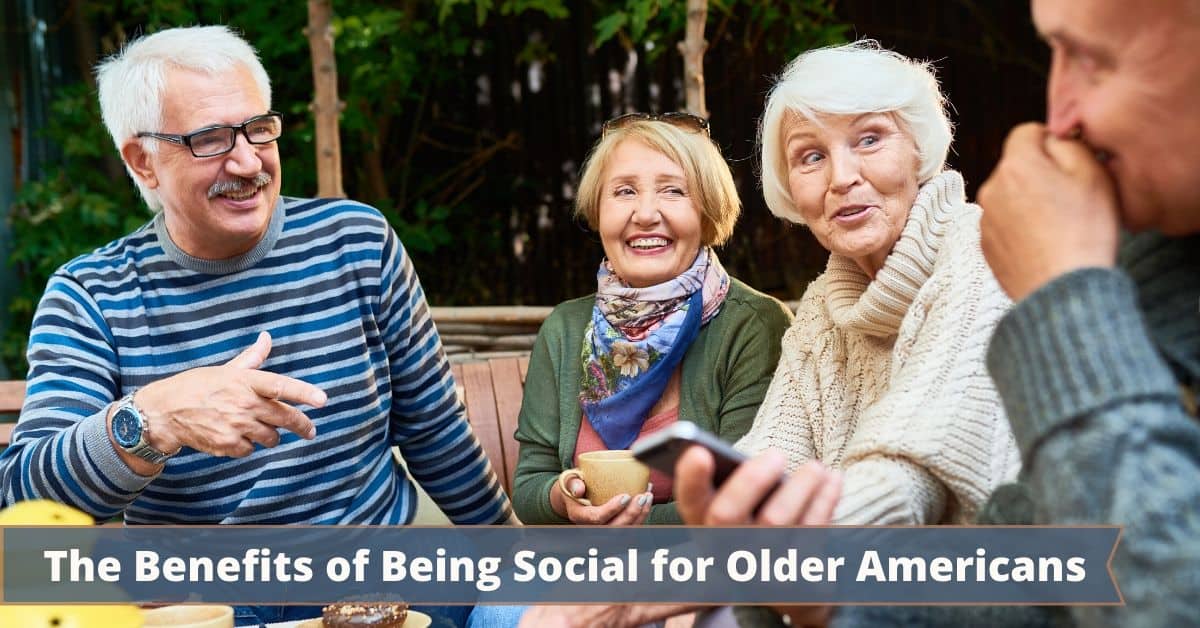Being social and having an engaging social life is critical to maintaining your overall health and happiness! Staying socially active – spending time with others, participating in activities, making new friendships and sustaining older ones – continues to help us learn, grow, and evolve. This is increasingly important for older adults who may be experiencing various changes to their life. Social wellness is an important component of health and is just as integral as physical exercise!
Importance of Social Wellness
Social wellness refers to our ability to build and nurture healthy relationships, engage with others, and make meaningful and supportive connections. This shapes our mental and emotional health which impacts all aspects of our lives. Maintaining social wellness can be incredibly helpful when experiencing major shifts and changes in one’s life. There are various life occurrences that are common as older adults age that can be both emotionally and physically challenging. Some examples include:
- Reduced physical mobility
- Loss of loved ones
- Retirement
- New medical conditions (medications, treatments etc.)
These experiences can cause you to need help from others and reduce your sense of independence. Additionally, they require making major adjustments to the ways you have been living. You may find yourself with more time, no schedule or routine, and unable to get around in the same ways. Approaching such drastic change can be overwhelming and stressful. Understanding your new reality and developing new ways of living is difficult and can trigger loneliness, depression, and isolation. Being socially active can significantly help with these life changes and alleviate the frustration and fear of having to figure it all out. Having others, you can lean on and activities that bring you joy can help you navigate your new circumstances with greater ease.
Benefits of Being Social
Social engagement deeply contributes to the vibrancy of life and one’s happiness. Being social can improve health and help people thrive by:
- Creating Sense of Belonging: career, children, and spouse are major parts of one’s identity. Circumstances such as retirement and children who are adults cause huge shifts in identity and how one spends time. This can be destabilizing and difficult to cope with. But being socially active can help you develop new relationships, discover and engage in activities that provide you with happiness. This allows you to build community and a support system that gives you a new sense of belonging.
- Restoring Confidence: a sense of belonging helps create meaningful purpose, identity, and connection. Having healthy relationships and engaging in fun activities can restore one’s sense of independence and confidence.
- Boost Overall Health: identifying and participating in physical activities is great for your health. Additionally, being socially active stimulates our brain and cognitive functions. Keeping your body and brain energized as well as having meaningful relationships enhances your mental, emotional, and physical health. This also reduces risk of various medical conditions that have become more common as one ages.
Being social is what brings balance and beauty to our lives. It is important to be consistently making an effort and pouring energy into your social life!
Ways to Enhance Social Life
We may find ourselves too busy, isolated, or unsure about how to improve our social lives. But there are so many ways you can become socially active no matter your age! There are a variety of places and organizations that intentionally create space for older adults to gather and engage with one another. Some ways you can explore being social are:
- Join a fitness center: it is common for gyms and/or community centers to offer different exercise classes for older adults. Fitness classes like yoga, Zumba, water aerobics are a great way to be physically active and meet others!
- Become a volunteer: this is such a great way to contribute to your community and neighborhood. You can look into volunteering opportunities at your local community center, schools, food banks, and animal shelters. Volunteering allows you to meet people of different generations and backgrounds while making a positive impact!
- Continuing education: colleges and community centers often offer courses for older adults interested in continuing their education. This is a wonderful way to keep your mind engaged and develop new skills!
If you believe you may have a hearing loss, contact us today to learn more! We provide comprehensive hearing tests and hearing aids that can benefit your social life.

